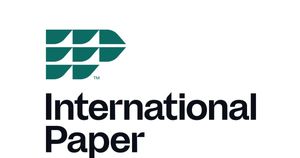The Central Bank of Nigeria (CBN) has once again demonstrated its commitment to stabilizing the foreign exchange market by extending the controversial $25,000 weekly sale of dollars to Bureaux De Change (BDCs) until May 30, 2025. The initial expiry date was slated for January 31, but the apex bank has recognized the necessity for this extension to meet the increasing seasonal demand for foreign exchange.
According to W.J Kanya, the Acting Director of the Trade and Exchange Department at CBN, this initiative allows BDC operators to buy foreign currency from only one Authorized Dealer under the constraints of funding their account fully before entering the market. This approach aims to facilitate all legitimate and eligible foreign exchange transactions at the market-determined rate.
This bold move was met with praise from Aminu Gwadabe, President of the Association of Bureaux De Change Operators of Nigeria (ABCON), who applauded the CBN for lifting the temporary suspension on interbank foreign exchange sales to BDCs. Gwadabe stated, “We are delighted the CBN has considered our members’ accessibility to the New EFEMS Market through the banks. This development is testimony of the CBN’s recognition of our third-level roles in the foreign exchange market architecture.” He emphasized how this decision will improve liquidity, thereby impacting Nigeria's currency positively.
The broader strategy of the CBN seems to hinge not just on aiding BDCs but also fortifying the naira amid fluctuative pressures. Recent reports indicated the effectiveness of CBN governor Olayemi Cardoso's reforms, which have begun to yield promising results. These changes include implementing increased interest rates on Treasury bills and enhancing pricing clarity through the Electronic Foreign Exchange Matching System (EFEMS). The alterations to the treasury bill strategy have successfully attracted new dollar inflows, helping the naira recover from previous tumults.
This shift has instilled growing confidence among foreign investors who have started to believe once again in the Nigerian market. A senior bank official during an investor call candidly stated, “Sell everything and buy Nigeria, everything,” epitomizing the promising outlook of financial stakeholders as recent CBN implementations lead to tangible benefits.
Reflecting on these measures, observers note the naira's resurgence, achieving its most stable state against prominent currencies, including the dollar, reaching 1474.78/$ on recent exchanges. This improvement couldn’t have come at a more opportune time for local manufacturers and foreign entities, who have been struggling with currency volatility, as it provides much-needed stability to continue their operations effectively.
Market analysts project persistent favorable trends, especially with the yield on one-year Treasury bonds reaching impressive figures around 27%, alongside auction rates for bonds maturing seven to ten years sitting closer to 22.50%. J.P. Morgan's recent analysis has highlighted Nigerian securities as increasingly appealing due to the reforms underway. “We stay long Nigeria T-bills, as reform momentum has started to bear fruit,” the report asserted, projecting continued recovery for the naira and local bond markets.
Despite the positive direction, experts caution about the necessity for increased demand from investors. A knowledgeable source remarked, “There’s not enough demand for it at the moment, but it’s there. Everything needs to be done, on Nigeria’s part, has been finished. It is now up to investors.” International banks, noting Nigeria's pivotal role, have shown interest, planning visits and consultations last January. Their objectives reflect growing investor sentiment directed toward Nigeria, contrarily absent over recent years.
Beyond the immediate monetary strategies, the CBN has taken significant steps to approve the CFA franc for use on Nigeria Export Proceeds (NXP) forms, as highlighted by the Nigeria Export Promotion Council's executive director Nonye Ayeni. Such measures align with Nigeria's broader intention to optimize its export outcomes and finance frameworks, linking various economic aspects to solidify foreign investment inflows.
Overall, the CBN appears to be methodically curtailing its financial policies, targeting effective implementation to not only reinstate confidence among investors but stabilize the economic environment for local enterprises amid the volatile foreign exchange climate. With promises of continued reforms, the future for Nigeria's financial sectors, fueled by determined governance, seems poised for progress.



